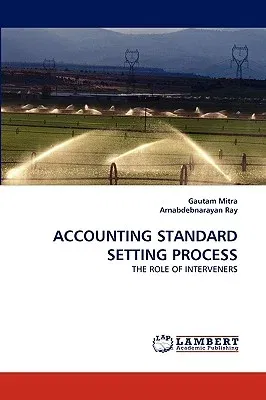Gautam Mitra
(Author)Accounting Standard Setting ProcessPaperback, 21 June 2010

Qty
1
Turbo
Ships in 2 - 3 days
In Stock
Free Delivery
Cash on Delivery
15 Days
Free Returns
Secure Checkout
Print Length
408 pages
Language
English
Publisher
LAP Lambert Academic Publishing
Date Published
21 Jun 2010
ISBN-10
3838336062
ISBN-13
9783838336060
Description
Product Details
Authors:
Book Format:
Paperback
Country of Origin:
US
Date Published:
21 June 2010
Dimensions:
22.86 x
15.24 x
2.31 cm
ISBN-10:
3838336062
ISBN-13:
9783838336060
Language:
English
Location:
Saarbrucken
Pages:
408
Publisher:
Weight:
594.21 gm

